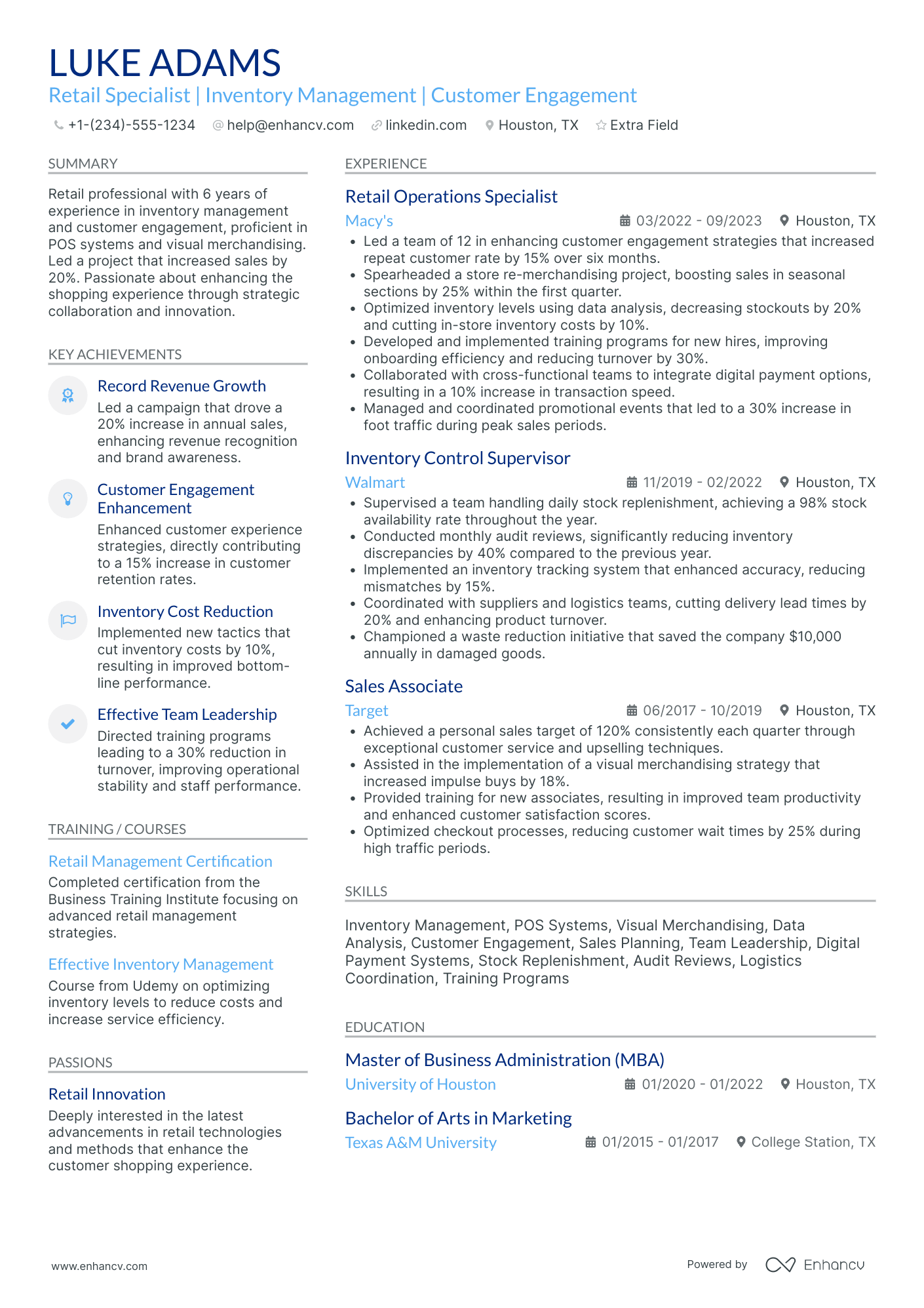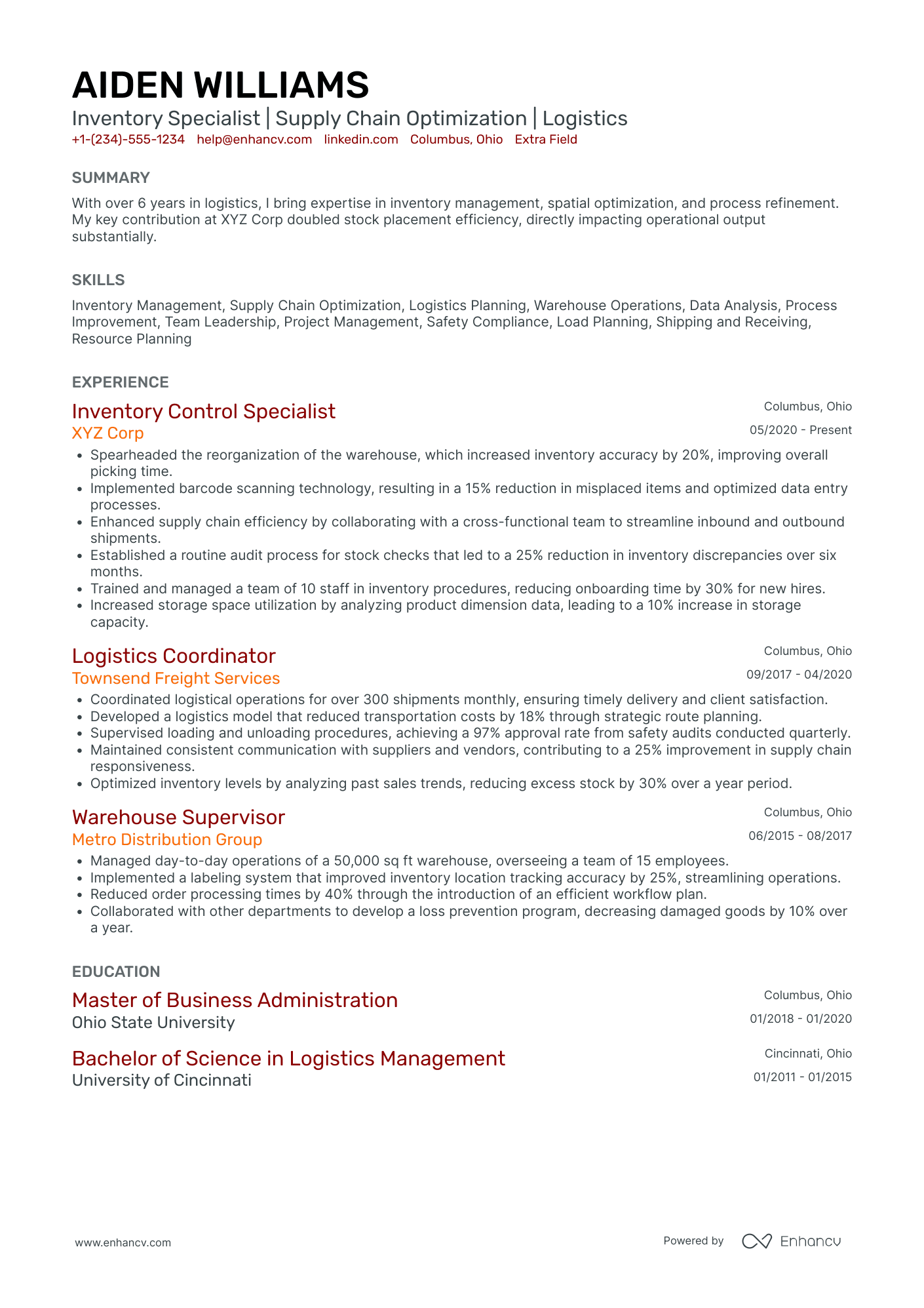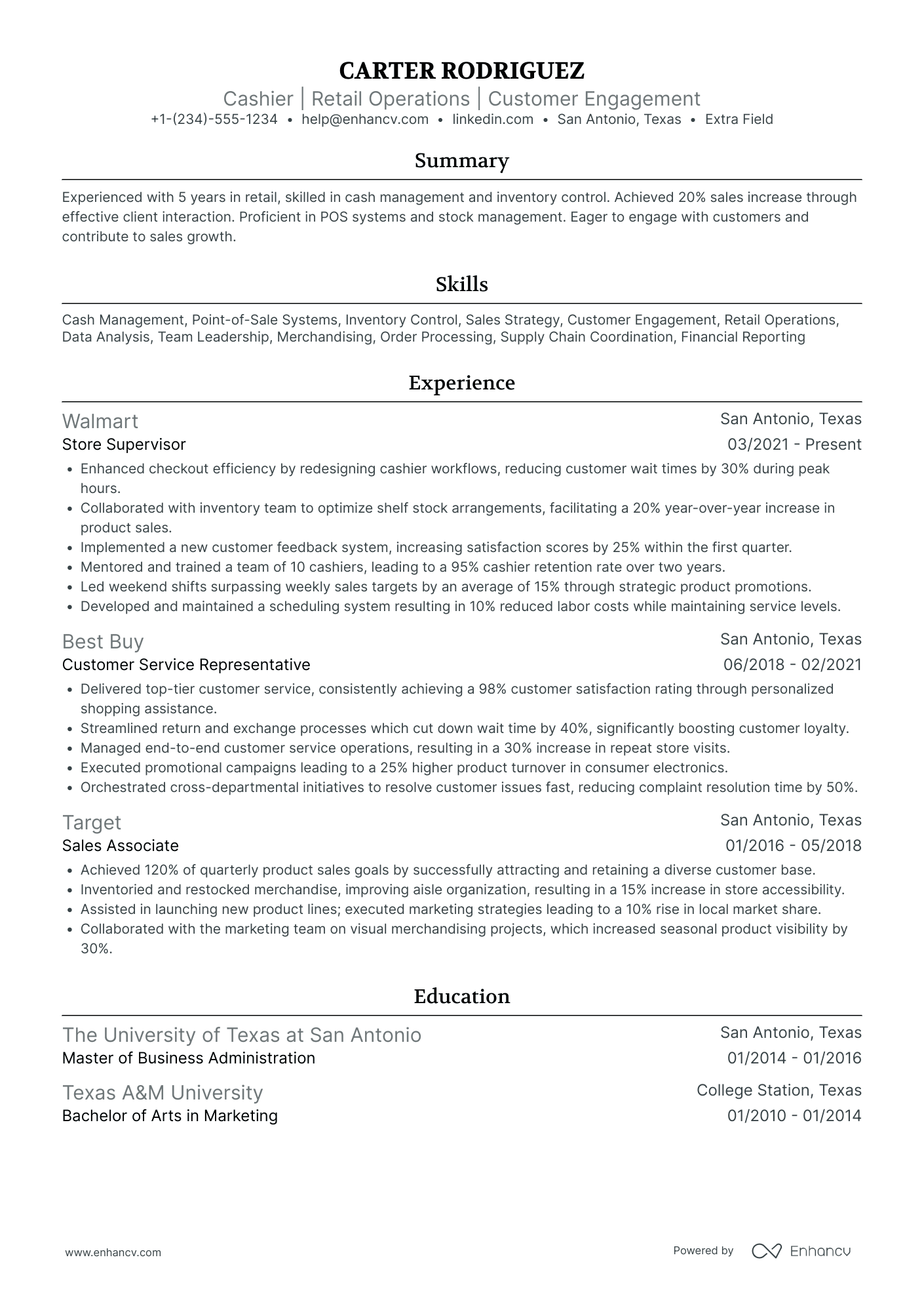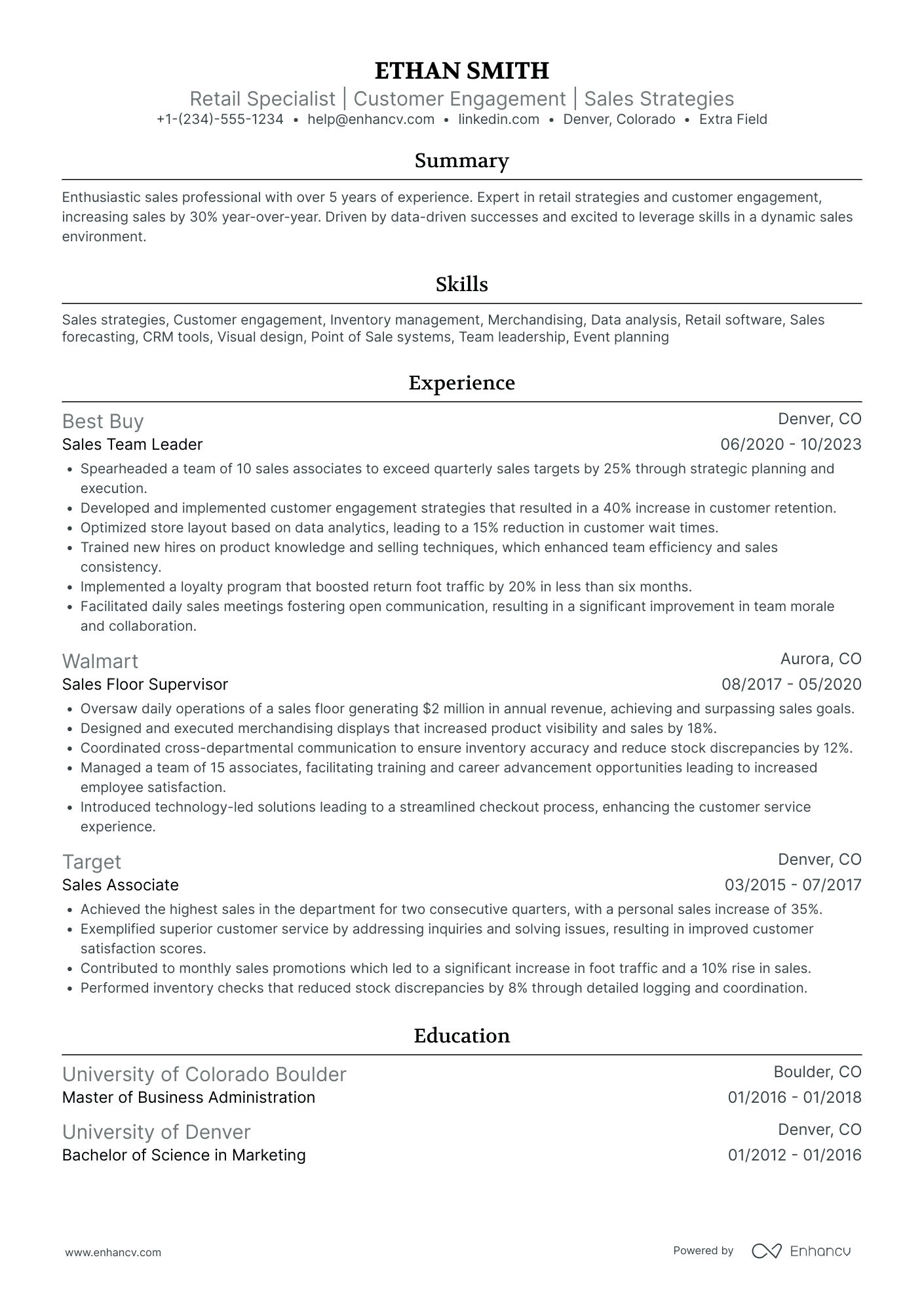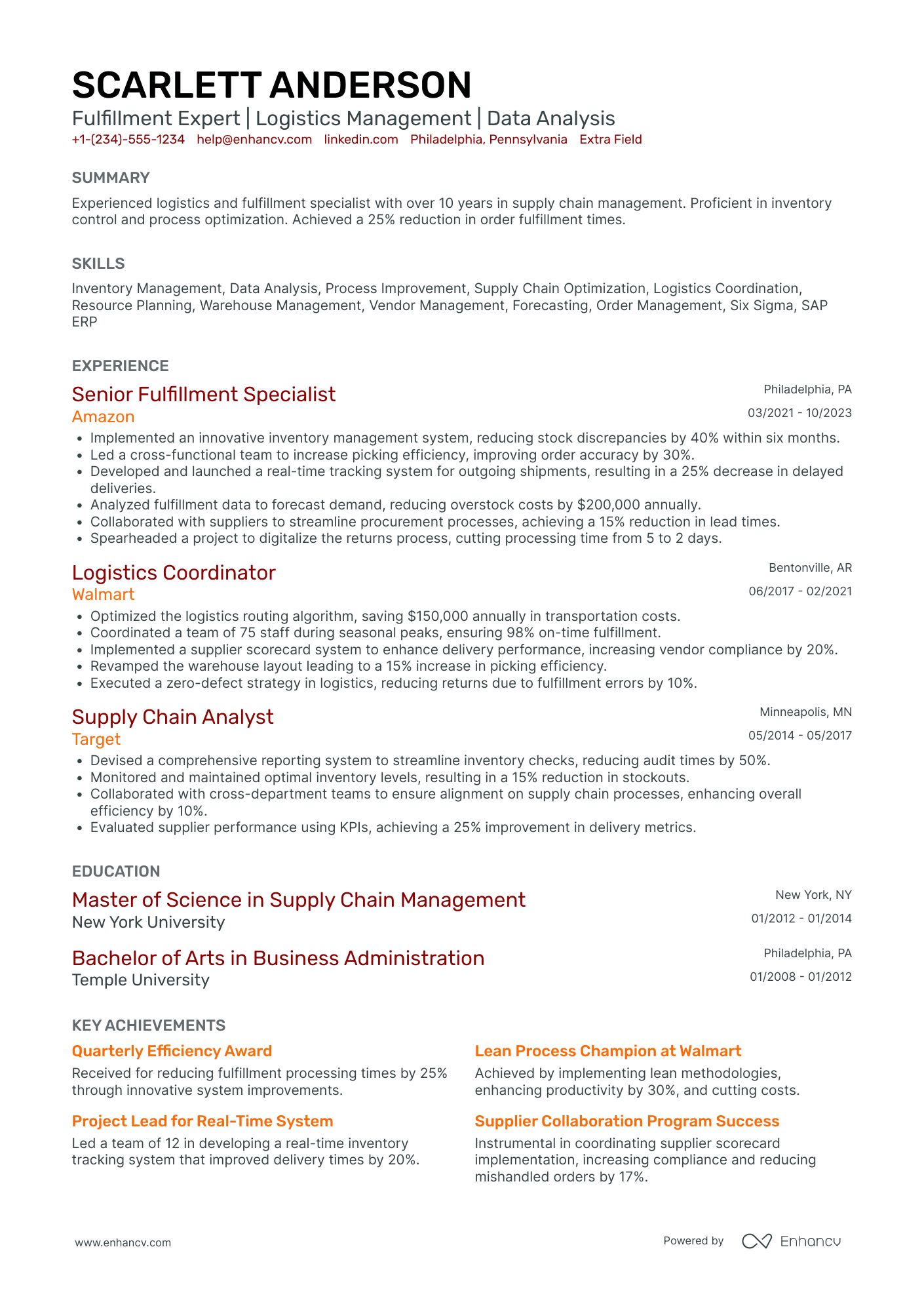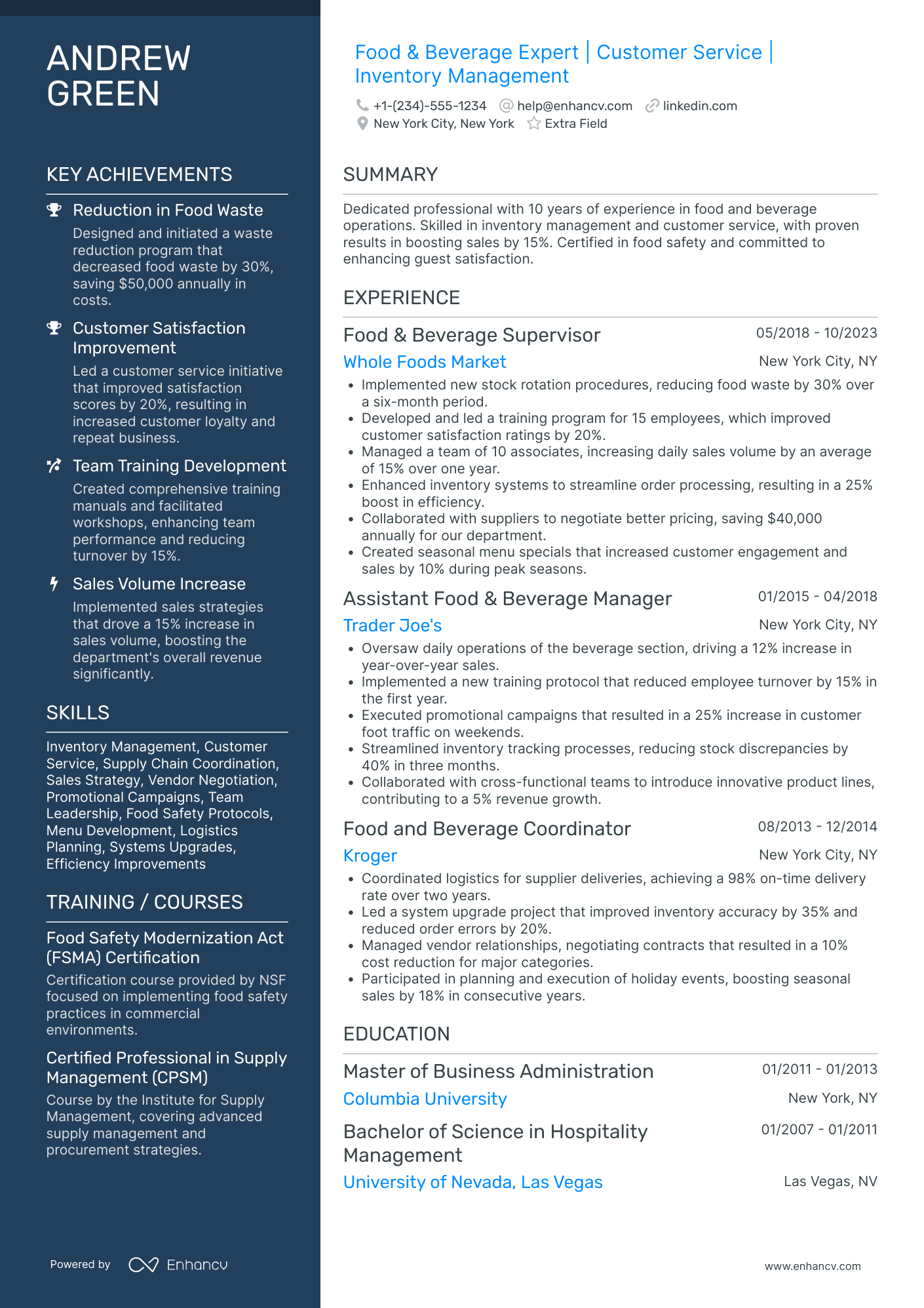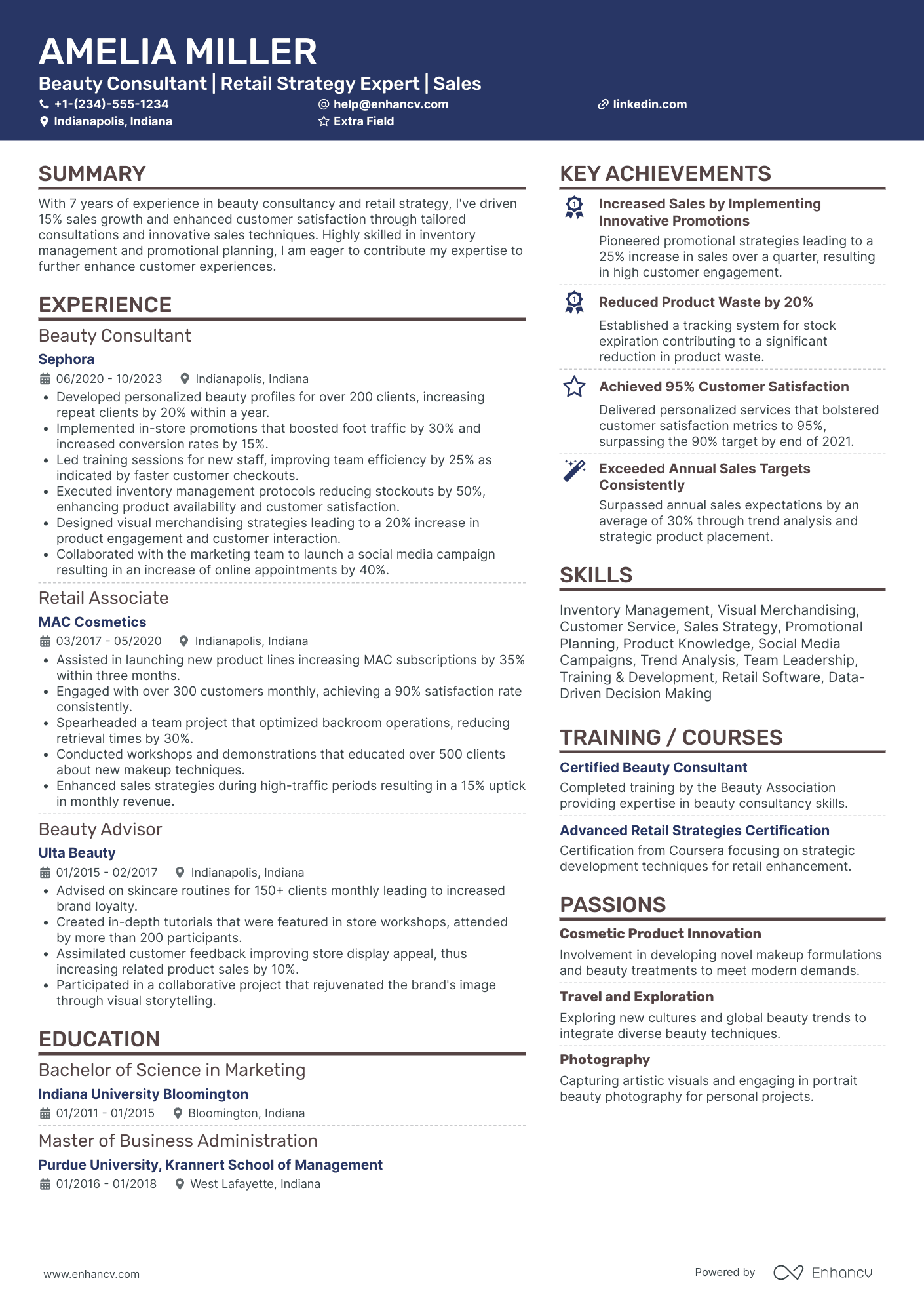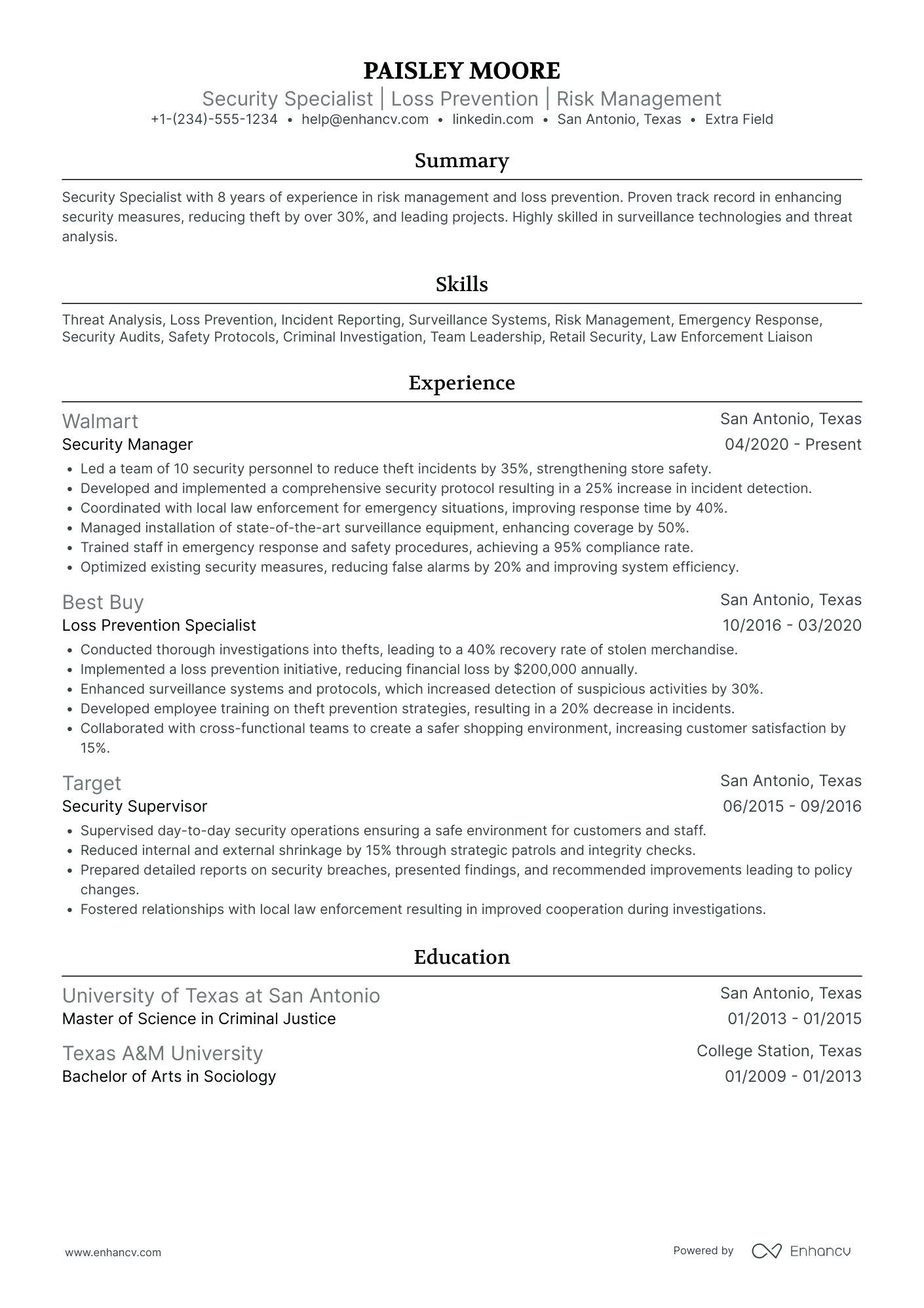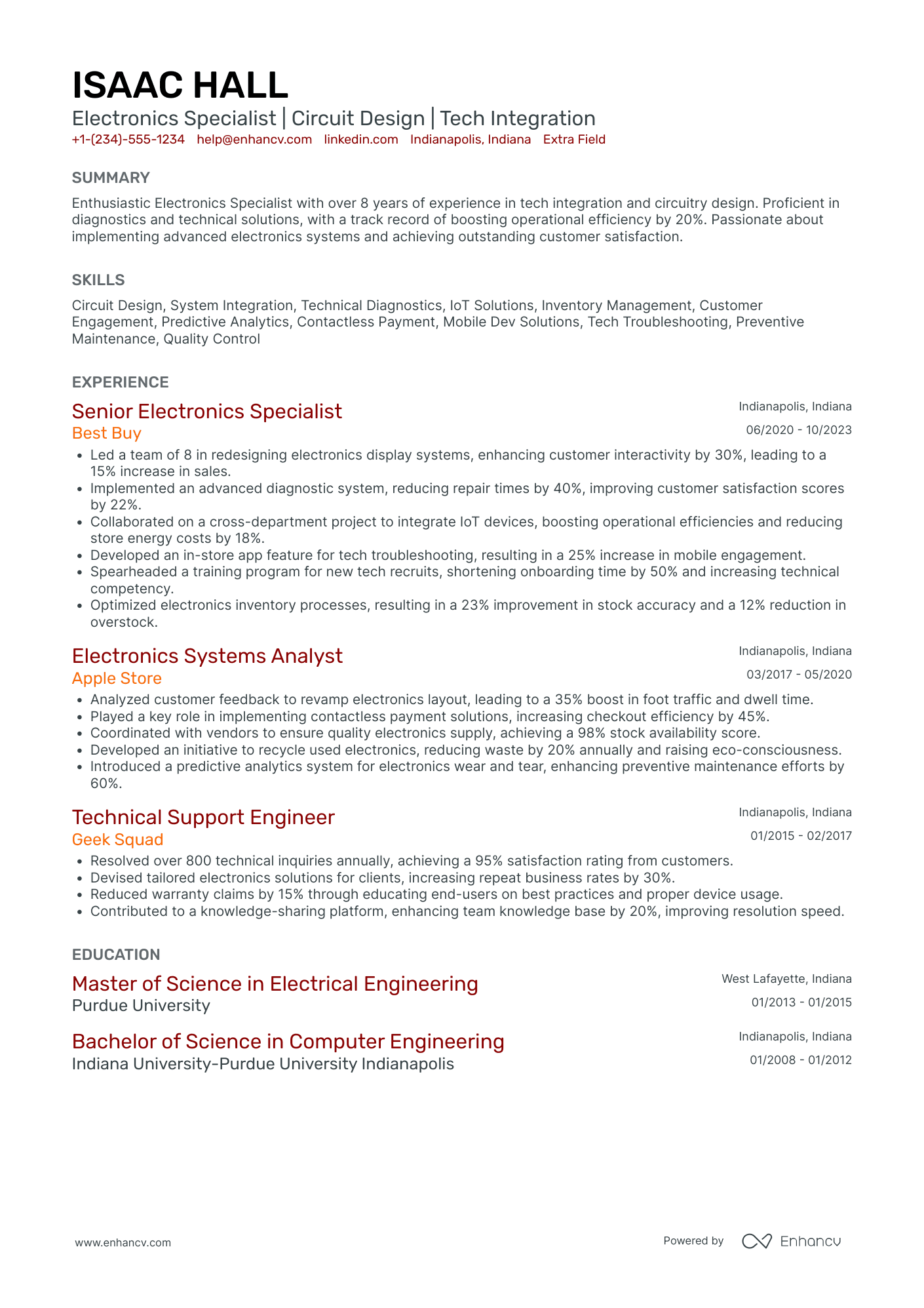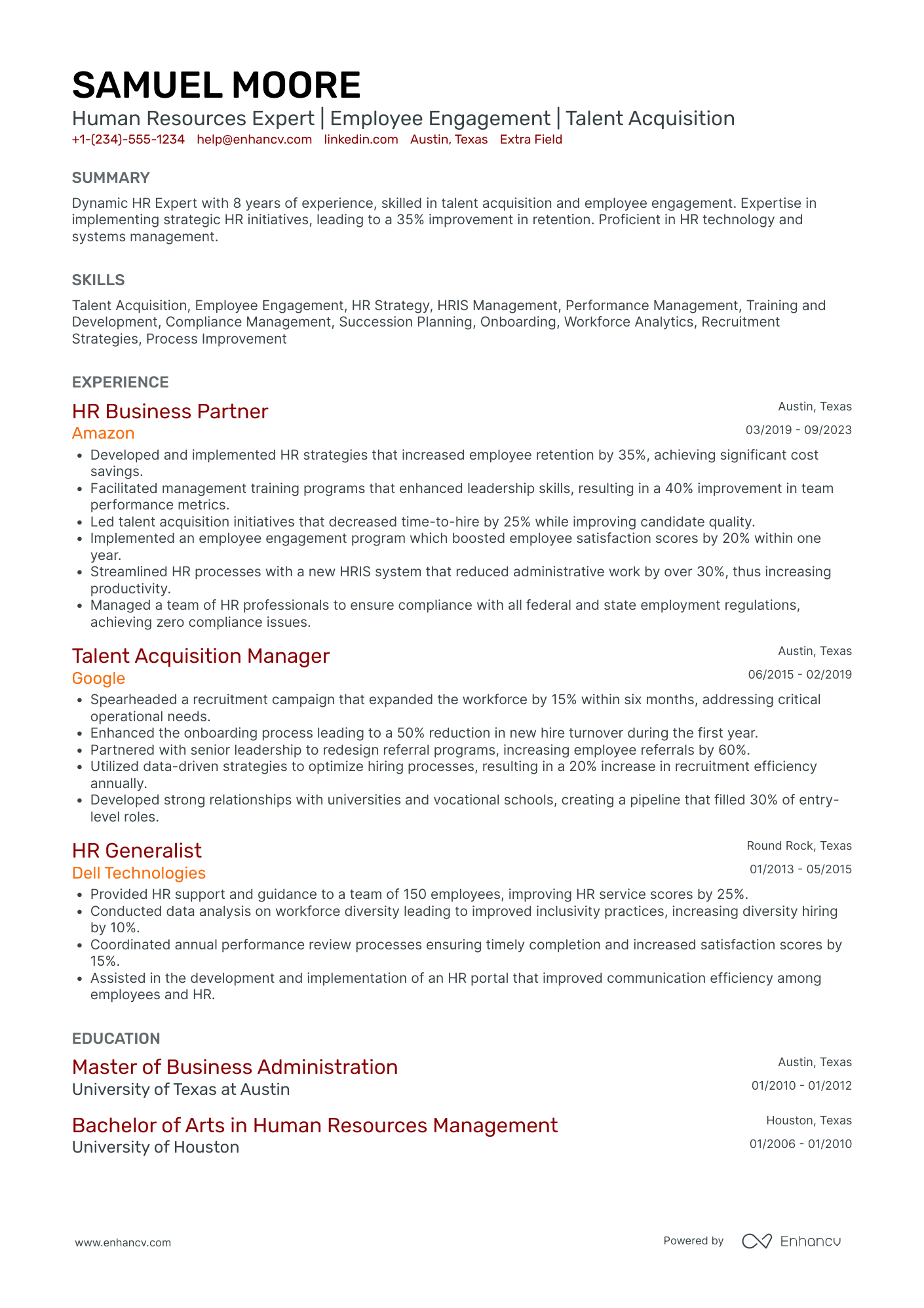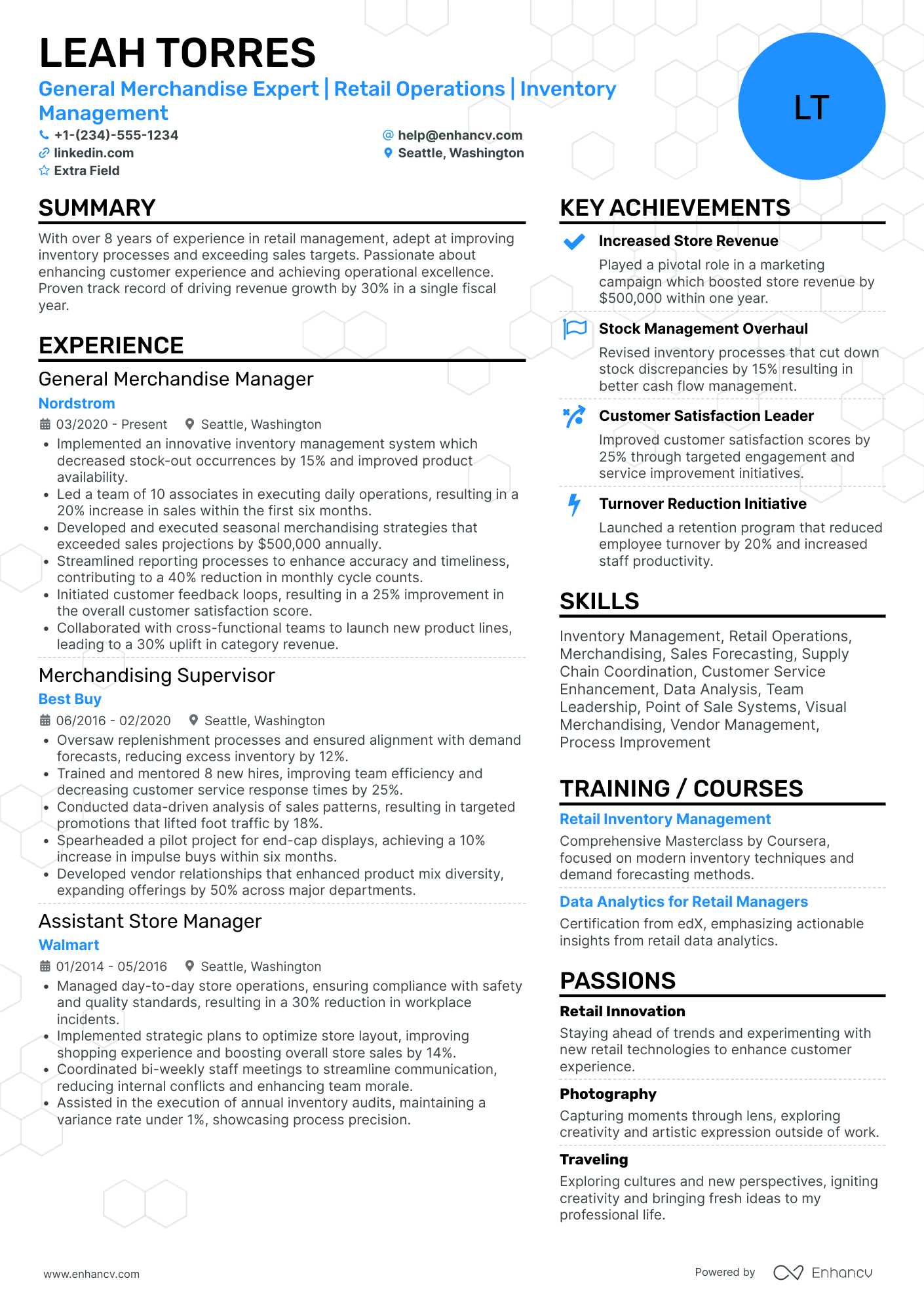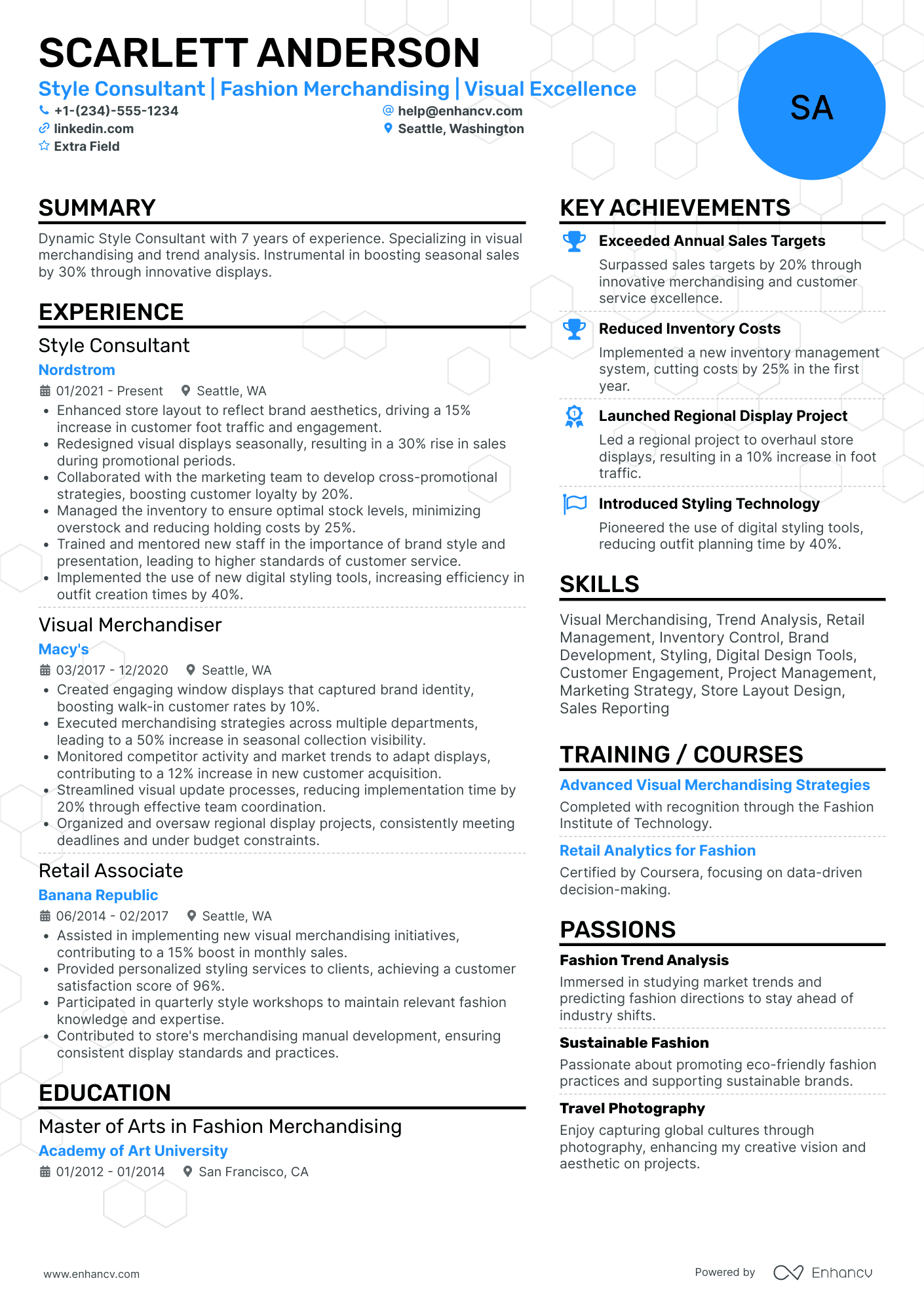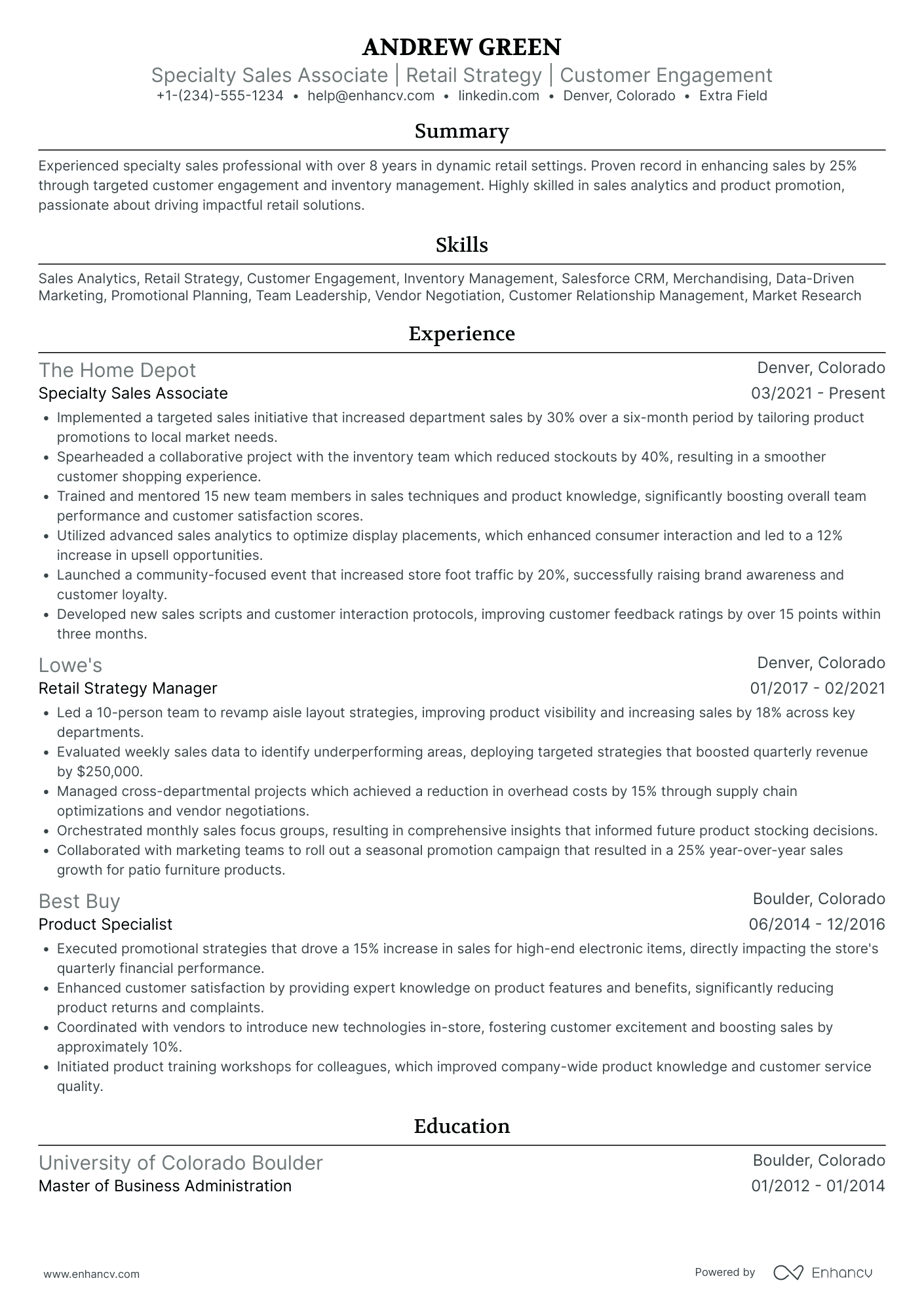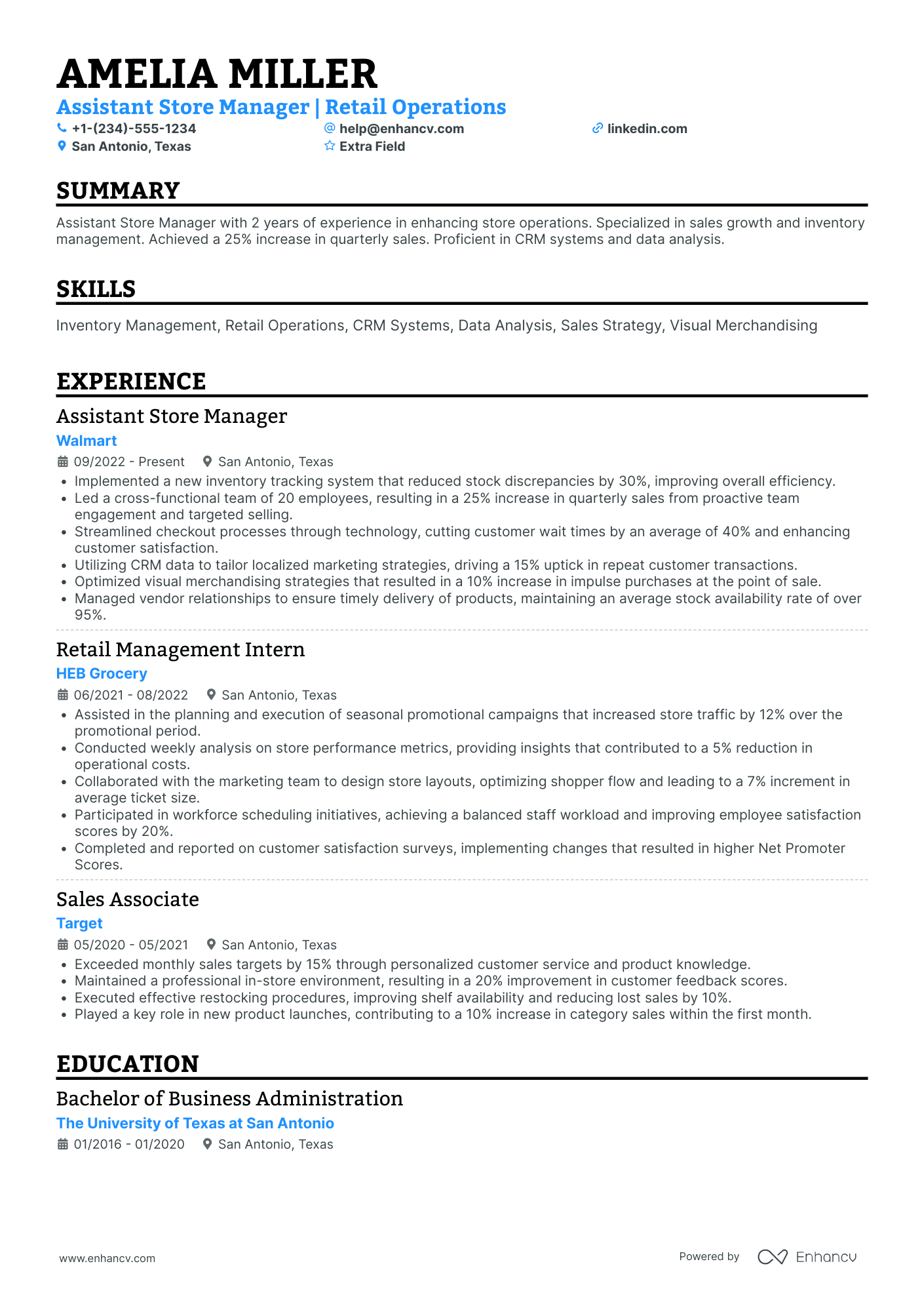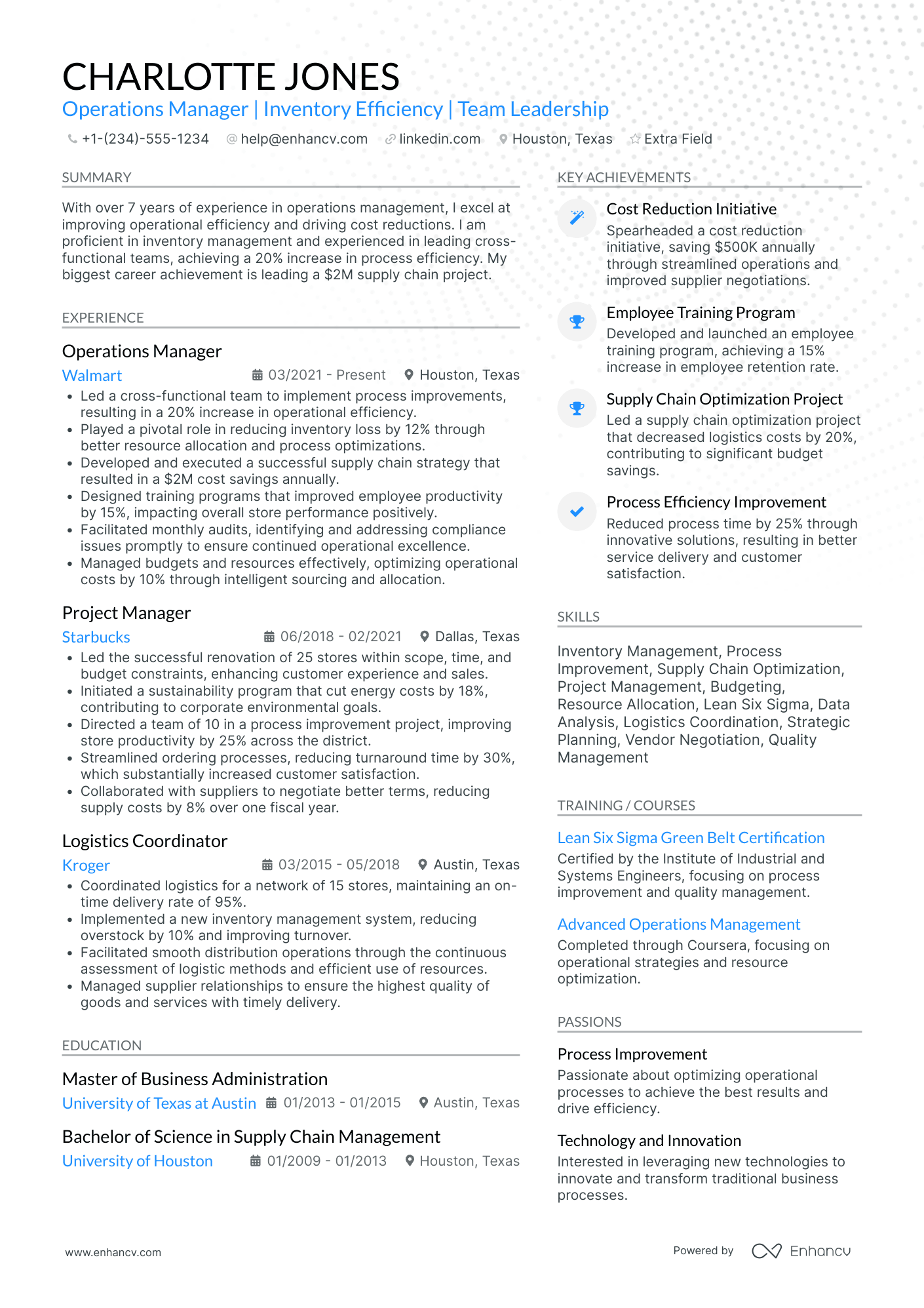Ever hear the phrase, “First impressions count”? Your resume is your first impression at Target—and whether you're stocking shelves, supporting guests on the sales floor, or fulfilling online orders behind the scenes, it needs to make an impact fast.
With only a few seconds to grab a hiring manager’s attention, how do you make sure your Target resume stands out?
This guide will show you how to write a resume that highlights your strengths, speaks Target’s language, and increases your chances of landing the interview. It’s complete with examples and a checklist to keep you on track.
Key takeaways
- Use a reverse-chronological format unless you lack experience—then consider a functional format.
- Tailor your experience section to underscore teamwork, time management, and guest service.
- Quantify your results whenever possible.
- List hard skills in a dedicated section and show soft skills through your experience.
- Include certifications like CPR training or OSHA compliance if applicable.
- Highlight transferable skills from school, volunteering, or other industries.
- Keep the design simple—one-inch margins, professional fonts, and a single-column layout.
- Add sections like language skills, awards, or volunteer work to show well-roundedness.
Before we get started, take a look at a resume example that goes beyond the usual template. It displays the team-oriented mindset, guest service skills, and results-driven experience that help you stand out.
Target resume sample
Here’s an example of a candidate trying for a specialty sales position at Target.
Susan McMurphy
Sales Associate
(208) 555-01XX | susan.mcmurphy@enhancv.com | @LinkedIn | Boise, ID
Summary
Friendly and fashion-forward retail professional with a strong interest in apparel and visual presentation. Known for creating welcoming experiences, staying organized, and thriving in high-energy environments. Eager to bring attention to detail, a guest-first mindset, and a collaborative spirit to the Target team in a Style Consultant role.
Experience
Retail Sales Associate
Fashion District Outfitters – Boise, ID
May 2022 – Present
- Assisted over 100 guests daily, contributing to a 15% increase in customer satisfaction scores over two quarters.
- Maintained 100% sales floor readiness by replenishing stock and executing visual updates on time per weekly VMG schedules.
- Processed up to $7,000 in daily transactions with 98% accuracy using POS and mobile checkout systems.
- Collaborated on seasonal floor resets, helping reduce setup time by 20% through better prep and communication.
- Trained and mentored 3 new team members, reducing onboarding time by 25%.
Student Ambassador – Apparel Team
Boise State University Bookstore – Boise, ID
Sept 2020 – April 2022
- Supported visual merchandising of 500+ SKUs of apparel and accessories during peak event periods.
- Improved backroom efficiency by reorganizing inventory layout, cutting item retrieval time by 30%.
- Maintained 98% accuracy in weekly pricing and signage audits across two departments.
- Assisted with fitting room operations during promotional events, helping boost conversion rates by 12%.
- Recognized by management for consistent execution of promotional displays and excellent guest service.
Education
Associate of Arts in Fashion Merchandising
College of Western Idaho – Nampa, ID
Graduated: 2022
- Relevant coursework: visual merchandising, retail buying, fashion trends & forecasting, customer behavior
Certifications
- OSHA Safety Training (2022)
- CPR & First Aid Certified (2023)
Skills
Hard Skills:
Visual merchandising | planogram execution | inventory tracking | point-of-sale systems | apparel restocking | fitting room management
Soft Skills:
Guest service | teamwork | communication | adaptability | time management | problem-solving
Languages
English (Fluent)
Spanish (Conversational)
Feel free to use this Target resume sample as inspiration to build your own impressive application with Enhancv’s AI resume builder.
Next, we’ll get into the core of your resume—how to format it for maximum impact.
How to format a target resume
The way your document looks plays a role in how quickly—and positively—it’s read. A clean, well-organized resume layout means hiring managers can find the good stuff right away.
Best resume format for target applicants
Reverse-chronological format:
This is the most common—and preferred—format for Target resumes. It lists your most recent job or experience first and works best if you have a relevant work history. This format clearly shows your career progression and makes your accomplishments easy to follow.
Functional format:
If you’re just starting out or don’t have much job experience, this format can work well. It focuses more on your skills, training, and strengths rather than specific job titles or timelines. You’ll highlight what you can do rather than what you’ve already done.
Hybrid format (combination):
This format blends both approaches. It's good if you have some experience, but want to show off your skills just as much as your work history. It's great for people who are changing careers or working part-time in different jobs.
At Target, I’ve been able to grow my career while staying true to who I am. The support, development opportunities, and inclusive culture make it a place where people genuinely care.
Carla Vernon, former President, Target Foundation
Design tips
- Margins: Use one-inch margins on all sides. This creates enough white space for easy reading and keeps the layout from feeling crowded.
- Font: Stick with clean, professional resume fonts like Arial, Calibri, or Rubik. Avoid decorative fonts—they can distract or cause formatting issues in ATS.
- Layout: Use a single-column layout to keep your resume clear and easy to follow—something especially important when applying to a fast-paced, detail-focused company like Target. While multi-column designs may look stylish, they can make it harder for hiring teams to quickly find the information that matters most.
Contact info must-haves
Make it easy for Target's hiring teams to reach you by including all key details right at the top of your resume in your contact information:
- Full name
- Job title you’re applying for (e.g., “Target Style Consultant”)
- Phone number
- Professional email address (avoid outdated or casual emails)
- City and state (no full street address needed)
- LinkedIn profile (optional but recommended if you have one)
No need to add a photo—Target doesn’t require or expect one, and omitting it helps avoid potential bias in the hiring process.
PRO TIP
Once your resume is finished and ready to go, save it as a PDF to preserve formatting across devices and operating systems.
Use a professional, clear file name that includes your name and the job title.
For example:
“Jordan_Riley_Target_Resume.pdf”
This makes it easy for recruiters to locate your resume later—and it shows attention to detail right from the start.
What About Applicant Tracking Systems (ATS)?
Like many other large companies, Target uses ATS—but don’t be too worried! These systems help organize applications—they don’t auto-reject. Fonts, colors, columns, and even length won’t trip them up.
The most important thing? A clean, targeted resume that uses the job description’s language and easy-to-read formatting.
Key sections
Every application should include the following resume sections:
- Header: Name, job title, and contact info.
- Summary or Objective: A snapshot of your background and what you bring to the role.
- Experience: Past jobs, internships, or relevant volunteer work.
- Education: High school diploma or higher.
- Certifications: Any that improve your qualifications.
- Skills: Hard and soft skills relevant to retail, fulfillment, or warehouse roles.
- Languages: Especially valuable in customer-facing positions.
Is your resume good enough?
Drop your resume here or choose a file. PDF & DOCX only. Max 2MB file size.
A well-formatted Target resume makes your skills and experience easy to spot—just like a well-organized sales floor. Now, let’s take a closer look at how to write a strong experience section that shows you're ready to contribute.
How to write your Target resume experience
Your experience section emphasizes you're more than a friendly face—you’re reliable, efficient, and ready to thrive in Target’s fast-paced, team-focused environment. Hiring managers want team members who stay positive under pressure, follow processes, and put the guests first. A tailored, role-specific resume will help you stand out.
Why tailoring your experience section matters
Customizing your Target resume helps you get noticed faster—and increases your chances of landing the interview.
Here’s why it matters:
- Shows you understand the role: Matching your past work to Target’s job description demonstrates you know what success looks like in retail.
- Makes your impact clear: A tailored resume helps hiring managers quickly see how your past contributions align with Target’s needs.
- Speeds up decision-making: Recruiters review hundreds of resumes. Tailored ones make their job easier—which works in your favor.
How to structure your Target experience section
Here’s how to create a clean, compelling work experience section for Target:
1. Read the job description carefully
- Look for repeated phrases or priorities: “guest experience,” “replenishment,” “safety,” “visual standards,” etc.
- Match your bullet points to these themes.
2. Use bullet points for each role
- Keep each job entry to 3–5 impactful bullets.
- Start every bullet with a strong action verb like: Assisted, Maintained, Collaborated, Stocked, Led, Resolved.
3. Focus on achievements—not just duties
- Instead of “Helped customers with purchases,” try:
“Assisted 100+ guests daily with product questions and styling support, contributing to a 95% satisfaction rate.”
- Use examples that show initiative, responsibility, and results.
4. Quantify your contributions when possible
Metrics catch a recruiter’s eye and prove your value.
Example phrases:
- “Reduced checkout wait times by 20% by streamlining guest flow.”
- “Restocked 200+ items per shift to ensure full salesfloor availability.”
- “Trained 3 new team members on fitting room standards and brand presentation.”
5. Highlight transferable or retail-relevant skills
- Even if you don’t have direct retail experience, show how you’ve worked in fast-paced environments, supported teams, or interacted with customers.
- Use terms like: multitasking, dependability, communication, safety awareness, and adaptability.
Want to see how this looks in action? Next, we’ll walk through a tailored experience section built around the style consultant job description. Below is an actual job advert from Target.
Specialty sales job description
ALL ABOUT STYLE
A Style Consultant is passionate about strong operations and providing an incredible guest experience, which brings the energy of style to life with compelling in-store presentations that enable quick and easy self-discovery. Style Consultants are welcoming and helpful in meeting guests’ needs on the sales floor and in the fitting room. Ensuring the floor is set full with the right product, accurately priced, and signed on the sales floor with the right sizes, styles, and colors. Areas include A&A, Home, and Baby.
At Target, we believe in our team members having meaningful experiences that help them build and develop skills for a career. The role of a Style Consultant can provide you with the skills and experience of:
- Our GUEST service fundamentals and experience supporting a guest-first culture across the store.
- Retail business fundamentals including: department sales trends, inventory management, guest shopping patterns, pricing and promotions strategies and basic visual merchandising.
- Industry trends, including: style, seasonality, and brand differentiation.
- Set, fill, and price the floor according to what is most important to the guest.
As a Style Consultant, no two days are ever the same, but a typical day will most likely include the following responsibilities:
- Create a welcoming experience by authentically greeting all guests.
- Observe to quickly understand whether a guest needs assistance or wants to interact. Follow body language and verbal clues to tailor your approach.
- Gain knowledge from store tools to have a clear understanding of key metrics, sales goals, top and bottom departments, inventory levels, top shortage categories, guest traffic, and peak times.
- Ensure product availability by keeping the sales floor replenished and organized to create a guest-ready, easy-to-shop experience that’s welcoming and inspiring for all.
- Create an inviting shopping environment by staying current on trends and brand guides along with executing visual standards and visual merchandising guides.
- Maintain and use the fitting rooms to welcome, inspire, and influence guests, and as an opportunity to provide personalized recommendations to complete their look.
- Be knowledgeable about the tools, products, and services available in the total store, and specific to your area, to solve issues for the guest and improve their experience.
- Acknowledge guests as you complete workload with minimal guest disruption, review sales trends to understand how to prioritize daily workload based on business and guest needs.
- Support changes to product assortment and keep the area inspiring to guests all year round by setting transitions on time, remerchandising new products, and maintaining a brand space following new sets.
- Be an expert and dedicated owner of assigned areas to ensure the sales floor is zoned, in stock, and accurately signed for guests.
- Ensure regular and promotional signing is set accurately for defined categories and be knowledgeable of products on promotion.
- Execute revisions, sales plans, planograms, and Visual Merchandise Guide (VMG)s for defined categories.
- Accurately execute backroom fills, inclusive of replenishment needs and guest requests.
- Own and maintain the organization of backroom aisles per standards, inclusive of backstock and locating items for your areas.
- Prioritize guest interaction and engagement while balancing tasks.
- Solve for guest needs, using available tools like myCheckout or the Target App to consistently offer selections that are not available in-store.
- Thank the guest in a genuine way and let them know we’re happy they chose to shop at Target. Remind them that you are here to help in the future.
- Always demonstrate a culture of ethical conduct, safety, and compliance.
- Work in a safe manner at all times to benefit yourself and others—identify and correct hazards; comply with all safety policies and best practices.
- Support guest services such as back-up cashier, order pick up (OPU) and Drive-up (DU) and maintain a compliance culture while executing those duties, such as compliance with federal, state, and local adult beverage laws.
- All other duties are based on business needs.
WHAT WE ARE LOOKING FOR
We might be a great match if:
- Working in a fun and energetic environment makes you excited. We work efficiently and as a team to deliver for our guests.
- Providing service to our guests that makes them say I LOVE TARGET! excites you. That’s why we love working at Target.
- Stocking, Setting, and Selling Target products sounds like your thing. That’s the core of what we do.
- You aren’t looking for a Monday thru Friday job where you are at a computer all day. We are busy all day (especially on the weekends), making it easy for the guest to feel welcomed, inspired, and rewarded.
The good news is that we have some amazing training that will help teach you everything you need to know to be a style consultant. But, there are a few skills you should have from the get-go:
- Strong interest and knowledge of apparel products and accessories.
- Welcoming and helpful attitude toward guests and other team members.
- Ability to communicate on multiple frequency devices and operate handheld scanners, and other technology equipment as directed.
- Effective communication skills.
- Work both independently and with a team.
- Resolve guest questions quickly on the spot.
- Capability to remain focused and composed in a fast-paced environment and accomplish multiple tasks within established timeframes.
We are an awesome place to work and care about our teams, so we want to make sure we are clear on a few more basics that we expect:
- Accurately handle cash register operations as needed.
- Climb up and down ladders.
- Scan, handle and move merchandise efficiently and safely, including frequently lifting or moving merchandise up to 15 pounds and occasionally lifting or moving merchandise and fixtures up to 44pounds without additional assistance from others.
- Flexible work schedule (e.g., nights, weekends, and holidays); reliable and prompt attendance necessary.
- Capable of working in and exposure to varying temperatures, humidity, and other elements while performing certain job duties, including but not limited to Drive-Up, carryout, etc.
- Ability to remain mobile for the duration of a scheduled shift (shift length may vary).
The following example shows how tailoring your experience to the job description can highlight the right skills and impact.
- •Greeted and assisted 100+ guests weekly, delivering personalized styling recommendations in a fast-paced retail environment.
- •Maintained a guest-ready sales floor by replenishing merchandise daily and aligning visual displays with seasonal brand trends.
- •Collaborated with the team to execute weekly floor set transitions, resulting in a 20% increase in customer engagement.
- •Monitored product movement and supported remerchandising to prioritize high-demand styles and maximize sales.
- •Used handheld scanners and POS tools to fulfill guest requests and locate sizes not available on the floor.
- •Executed floor revisions, promotional setups, and VMG plans across Women’s and Home departments with 100% accuracy and on-time delivery.
- •Drove a 15% increase in department sales by creating compelling, easy-to-shop visual displays aligned with current style and seasonal trends.
- •Supported backroom efficiency by reorganizing stockroom aisles, improving fill times and replenishment accuracy by 25%.
- •Assisted with pricing, signing, and planogram resets for 200+ items weekly across multiple categories.
- •Balanced visual workload with guest service priorities, providing support without disrupting shopping experiences.
- •Delivered friendly, solution-focused service to up to 150 guests daily, maintaining a 97% satisfaction rating.
- •Trained 5+ new hires on guest engagement, conflict resolution, and mobile checkout tools.
- •Demonstrated strong multitasking by managing both front-of-store service and behind-the-scenes restocking duties.
This experience section is made for the Target Style Consultant job. It shows the job's focus on guest service, visual merchandising, inventory accuracy, and knowing about trends.
Each bullet point is like the main tasks from the job ad. These tasks include keeping the sales floor full and organized, helping guests choose styles, doing VMGs, and using retail tools to help guests.
Tailoring your experience is essential—but adding numbers takes it a step further.
How to quantify your experience on a resume
Quantifying your achievements helps hiring managers quickly understand the impact you’ve made in previous roles. Whether it’s guest interactions, sales growth, or efficiency improvements, metrics show that you don’t just do the job—you do it well.
Here a some ways you can do just that:
- Underline how many product displays you updated each week and how often those changes led to increased guest engagement.
- Track how quickly you restocked high-demand items during peak shopping hours and how that affected sales flow.
- Include how many fitting room sessions you supported per shift and the number of completed looks you helped guests build.
- Note how many times you executed VMG updates accurately and how long it took to complete each setup.
- Report how many guest requests you fulfilled using tools like myCheckout and the percentage that resulted in completed purchases.
If you don’t have previous retail experience—or any work history at all—you can still create a strong experience section that shows you’re ready for a role at Target.
How do I write a Target resume with no experience?
If you haven’t worked in retail before—or are applying for your first job—don’t worry. A strong resume doesn’t have to include traditional job experience. Instead, highlight your skills, character, and readiness to learn by adjusting the format and adding impactful sections.
What to list instead of work history
- Provide a resume objective at the top to explain your career goals and interest in the Target role.
- Use a skills summary section to group your top strengths, like communication, time management, or tech tools.
- Include relevant coursework, school projects, or extracurriculars that prove leadership, responsibility, or collaboration.
- List volunteer work, community involvement, or personal projects that reflect real-world skills.
- Add a certifications section if you’ve completed training like CPR, OSHA, or safety courses.
- Create a technology section if you’re familiar with tools like Google Workspace, mobile apps, or point-of-sale systems.
- Use a functional or hybrid resume format that emphasizes skills over job titles.
Tips for writing a strong objective statement
A resume objective is especially helpful if you don’t have much experience. It sits at the top of your resume and quickly tells the recruiter who you are, what you’re aiming for, and how you’ll contribute.
Objective writing tips:
- Keep it short—2–3 sentences max.
- Mention the role you’re applying for.
- Show enthusiasm and willingness to learn.
- Highlight 1–2 personal traits or transferable skills that fit the job.
Check out this great example:
By putting your resume in this way, you show what you can do, not just where you've worked. This makes you a good candidate for a job at Target, even if you don't have retail experience.
Next, let’s look at how to showcase your skills in a way that grabs attention.
Optimize your resume summary and objective for ATS
Drop your resume here or choose a file.
PDF & DOCX only. Max 2MB file size.
How to list your hard and soft skills on your resume
Skills play a big role in helping Target hiring managers understand what you bring to the team. Even without years of experience, the right skills show that you're ready to support guests, work with others, and thrive in a fast-paced environment.
There are two main types of skills to include:
- Hard skills are specific abilities or knowledge you’ve learned—like using technology, stocking products, or following safety procedures.
- Soft skills are personal traits that affect how you work with others, such as communication, teamwork, or staying organized.
On your application, hard skills should go in a dedicated resume skills section so they’re easy to find. Soft skills can be mentioned throughout your resume—especially in your objective, summary, and experience sections—by showing how you’ve used them in real situations.
Here are some of the most sought-after hard skills in a Target candidate for any position.
Best hard skills for your target resume
- Point of Sale (POS) systems
- myCheckout
- Zebra handheld scanners
- Inventory management software
- Order Management System (OMS)
- Task management apps (e.g., Workbench)
- Digital price scanners
- Barcode printers
- Scheduling systems
- Mobile order fulfillment tools
- RFID tracking systems
- Cash register systems
- Backroom inventory locator tools
- Store communication headsets
- Electronic shelf labels
- Self-checkout kiosks
- Planogram software
- Visual Merchandising Guide (VMG) platforms
- Team mobile devices
- Digital training platforms
Now, for the best soft skills to weave into your resume.
Best soft skills for your target resume
- Communication
- Teamwork
- Problem-solving
- Adaptability
- Time management
- Attention to detail
- Customer service
- Reliability
- Conflict resolution
- Good rapport
- Multitasking
- Initiative
- Accountability
- Stress management
- Active listening
- Decision-making
- Organization
- Patience
- Collaboration
Now that you’ve identified the key skills for a Target role, let’s look at how to detail your education and certifications to make your application even stronger.
How to list your certifications and education on your resume
Even if the role doesn’t require a degree, your education section still plays an important part in showing that you’re prepared, reliable, and ready to grow. It also helps demonstrate transferable skills—like teamwork, time management, and accountability.
What to include in an education entry
- Name of the school or institution
- Location (City, State)
- Degree, diploma earned, or GED
- Graduation year (no need to include the month)
- Optional: relevant coursework or academic projects that relate to the role
Let’s take a look at a sample education entry written with the particular Target role in mind.
- •Relevant coursework: Visual Merchandising, Retail Operations, Consumer Behavior, Apparel Trends & Branding
Education is great, but practical experience can speak louder.
Why certifications matter on a Target resume
Certifications can strengthen your resume by showing that you’ve completed relevant training and taken the initiative to grow your skills. For roles at Target, certifications related to safety, first aid, or customer interaction can give you an edge—especially if you’re applying with limited experience.
What a certification entry should include:
- Full name of the certification
- The issuing organization or training provider
- The year it was earned or completed
- (Optional) Expiration date, if relevant
Where to place it on your resume:
- Add certifications in a separate section labeled “Certifications” below education or skills.
- If a certification is especially relevant to the role (e.g., OSHA or CPR), you can also mention it in your summary or objective to grab attention early.
- Keep formatting consistent—use bullets or line breaks to make the section easy to scan.
Below are some of the most popular training programs for Target candidates.
Best certifications for your target resume
Now that your education and training are in place, it’s time to focus on your resume summary—the first impression that ties everything together and shows why you're a great fit for Target.
How to write your target resume summary
Your resume summary is one of the first things a hiring manager sees. It’s at the top of your resume and provides a quick, focused picture of who you are as a candidate. For a Target job, it should show how you can help guests, work well with others, and help the store reach its goals with a positive attitude.
Your summary should:
- Convey your experience level, relevant skills, and career focus.
- Highlight achievements or strengths that match the role (quantify where possible).
- Use keywords from the job description to show alignment.
- Avoid using first-person language (no “I,” “me,” or “my”).
- Keep it concise—two to three sentences is ideal.
Here’s a strong example of a resume summary written with the Target role in mind.
This summary works well because it highlights key responsibilities from the job description—like guest service, merchandising, and sales floor readiness—while showing proven impact with measurable results. It also stays clear and professional, giving recruiters a quick snapshot of the candidate’s strengths without overexplaining.
Now with your summary clarified, let’s consider adding optional sections to shine a light on additional strengths, experiences, or qualities.
Additional sections for a Target resume
These sections can give your Target resume an extra edge by displaying more of who you are—beyond your work history—and helping you stand out in a guest-focused, team-driven role.
- Volunteer experience: Highlights your commitment to helping others and working as part of a community or team.
- Awards & recognition: Shows that you’ve been recognized for your work ethic, service, or performance.
- Language skills: Useful in a diverse retail environment where multilingual team members can enhance guest communication.
- Personal projects: Demonstrates initiative and creativity, especially if related to fashion, styling, or organization.
- Hobbies & interests: Personalizes your resume and can prove alignment with Target’s culture and brand (e.g., interest in fashion, guest service, or community involvement).
In conclusion
Your resume is more than a list of jobs—it’s a tool to show you’re ready to contribute to Target’s fast-paced, guest-focused environment. With a clean layout, the right keywords, and an emphasis on your people skills and dependability, you’re already ahead of the game.
